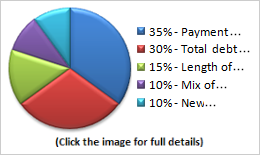Home > Active Credit Repair > The Power of Debt Validation and Credit Repair
The Power of Debt Validation and Credit Repair
Posted on November 25, 2011
During the process of credit repair, you may encounter a call (or several) from a debt collector trying to collect on a debt you may not be familiar with or you are not ready to deal with the present time. A powerful and effective tool for dealing with such a scenario is to request a debt validation letter. Making this request is within your right and also protects you from a potentially fraudulent scenario.
What is a Debt Validation?
Debt validation is a legal process which is part of the Fair Debt Collection Practices Act. Debt validation is a request made by a consumer to the creditor asking for proof that the collection agent making content has been assigned to collect the debt. It also helps to establish the total amount you owe as per the original creditor.
Creditors will hire professional collection agencies to collect on unpaid debts after a certain period of time and after a certain amount of effort to collect past due accounts. Most debt accounts are sold to the collection companies because the original creditor no longer has the time or resources to get the money repaid. Debt collection companies specialize in the business of recouping funds. Many agencies also have built a reputation for using unfair collection tactics which has in turned beefed up consumer protection laws to prevent this from happening.
Since debt collection agents can be quite aggressive to collect the commissions they make, it is imperative that consumers protect themselves from unlawful collections. Just because someone says you owe money doesn’t make it true, no matter how convincing they make things sound.
What Should Be Included in the Validation?
Once you request a debt validation, the collection agent must send you proof of your original debt. This may include an account statement from the creditor who originally handled the account. Consumers can also request more detailed information such as a complete history of payment from the original creditor which also shows added on fees and charges assessed by the original account holder.
Additionally, collection agents should also provide you with an original copy of the agreement between you and the creditor, which may include your initial signed agreement, contract, or credit card application.
Finally, a collection company should be able to provide you a copy of the contract that proves the debt has been transferred or sold to the collection agency now contacting you. The debtor can not be charged for this information.
What If No Proof Exists?
In the event a debt collection agent is not able to provide proof they have the right to collect on a debt, there are things a consumer should know:
- Collection agencies can not collect the debt owed.
- Collection agencies can not continue correspondence about the debt.
- Collection agencies can not report information about the debt to the consumer credit reporting bureaus.
If any collection agency does not abide by the above-mentioned rules, they are in violation of the Fair Credit Reporting Act and can be sued by the consumer per the Federal Trade Commission for up to $1,000 in damages per violation.
Before you panic over a debt collection call, be sure to request a validation of the debt and make every effort to eliminate the debt should it prove to be one your legally are responsible for paying.
Similar Posts:
- Putting Together a Credit Repair Plan
- Tips for Negotiating a Pay for Delete Request
- Credit Repair Don’t: Dispute Everything On Your Credit Report
- How Should You Deal With Past Due Accounts?
- What Are Some Common Strategies to Pay Off Derogatory Accounts?







Let's connect!